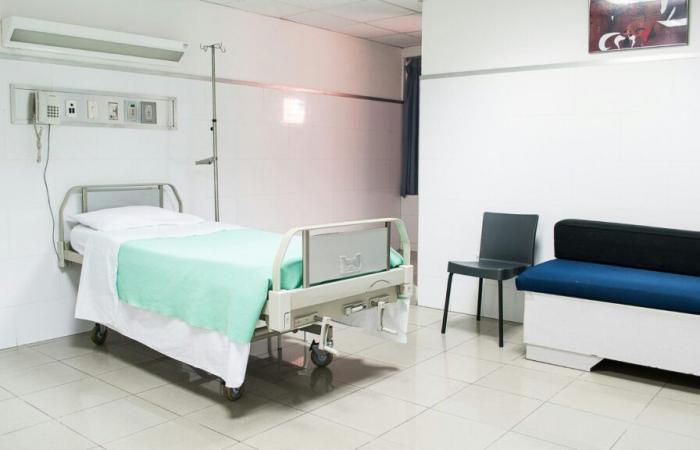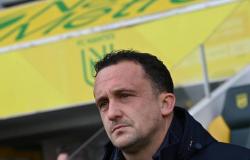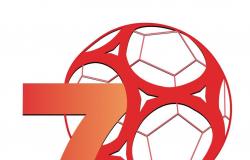
While still in her mother's womb, Solène was diagnosed with a congenital malformation that will impact her health for the rest of her life. She shared her story of pregnancy and childbirth with Madmoizelle, and today returns to her daily life with an invisible chronic disability, which deprives her of a kidney and threatens her arteries on a daily basis.
It was during the 6 month ultrasound that my mother discovered that my urethra was poorly implanted on my bladder. An anomaly causing reflux, pain and urinary infections.
When I was born, after 6 months of postpartum antibiotics, it was finally decided to have micro-surgery. I was only 6 months old then.
Also read:
My cancer has left me with an invisible handicap: “having to constantly justify myself is exhausting”
“The operation is a failure”
Today, I don't know if this decision was relevant, but I know that my parents did the best they could, with the means and knowledge of the time (we're talking about the year 1988). Actually, the operation is a failure and my left kidney is ruined, well, it only functions between 1 and 5/100.
However, this will give a tasty anecdote at family meals, the surgeon having closed my lower abdomen with his signature… I am in a way “his work of art”, but then no luck, it's a failure!
From 6 months of life, my body learns to function with only one kidney, the right one becomes hypertrophic to compensate and life resumes its course. In itself, the story could end there, because you can live very well with just one kidney. Of course, I had check-ups for a long time, each one more embarrassing than the last (the notion of respect for young patients in the 1990s, of consent, was not yet developed); That being said, I find myself at 20 years old without major difficulties, but it is at this age that the disease reminds me.
While I was having a check-up during my 3rd year of studies, the doctor discovered my blood pressure was very high: I went up to 19/12, at 20 years old! A cardiologist gets involved, and during a day of hospitalization and all kinds of tests, I am given a laconic “You have to exercise, lose weight”. Thanks, but I do, and I'm not actually overweight.
These two pieces of advice are certainly the prerogative of doctors short of arguments and undoubtedly talent, I will have had them countless times. I am still leaving with long-term treatment.
At 25, after a traumatic event, I experienced major decompensation, I woke up one morning with a swollen head. I urgently went to consult my local doctor (I lived in Le Havre at the time) who recommended a blood test to check kidney function “just in case”. This “just in case” will have saved my only kidney! He calls me that same evening: my kidney is failing, head to the emergency room. I am in renal failure++, my kidney no longer evacuates waste, which explains the edema.
I am then infused, hospitalized. The medical profession is incomprehensible, I am young, this type of case is rare; so rare that I am asked several times if I am not simply a cocaine user…
After a week of tests, hydration, monitoring, the diagnosis of my illness finally came: I have fibromuscular dysplasia. My arteries are narrowing, it's a progressive malformation; that of the kidney is then shrunk by 80%, the heart compensates by creating hypertension. The remedy at this stage remains simple: the surgical procedure, namely balloon dilation (a small balloon is introduced at the level of the narrowing which is inflated and which is supposed to give its new shape to the artery).
Also read:
What my physical disability has changed in my relationship to the body and sexuality
“It’s in your interest to have children quickly”
While I am leaving the hospital under reinforced supervision, my next hospitalization is planned for a dilation in Rouen. A stay this time of 3 days which will end with a sentence which will punctuate my life and my choices for the next decade: “it is in your interest to have children quickly, we have no control over this disease, pregnancies will be at risk ++”.
The tone is set, 25 years, lifelong medication, a degenerative disease which would involve continuous monitoring, one or more complex pregnancies to come. For me, who was then convinced that I wanted four children, the tone was set!
If I take stock 10 years later, I have indeed had 2 other kidney dilatations, the medical profession no longer knows what to do with “my case” because the kidney malformation persists and regularly puts my body to the test (not to mention that the renal artery is increasingly weakened and there is a risk of rupture). I am currently being followed by a Parisian center specializing in this type of illness, although I live in the provinces (sometimes you have to know how to travel miles to feel well cared for).
I don't know if I should undergo another procedure or when I will have to move on to a more radical step (transplant, dialysis, etc.).
Also read:
“My illness made me realize that life was short”, meeting with the singer Thérèse
“We don't talk about it enough, but being sick takes time! »
I actually had two very complicated pregnancies from which I had difficulty recovering physically and psychologically: we are talking about prematurity, potential IMG (medical termination of pregnancy), pre-eclampsia, etc. I won't be able to carry out a third as it is (my artery being 80% narrowed). I am on medication, my treatment (which was around 15 pills/day) could be reduced, because I play sports, do not work full time and more in a stressful environment (hypertension is multifactorial, I chose to act on the factors I could control).
Today, in addition to the renal artery, I have a heart artery to monitor (it dilates opposite the kidney), and stage 1 retinopathy (my eyes have difficulty tolerating excessive variations in tension of recent years).
I have what we call an invisible disability, when you see me you don't notice it, but my body suffers and gets tired more quickly.
I made an AAH (disabled adult allowance) request last December, which was accepted and allows me to look for part-time or half-time employment. We don't talk about it enough, but being sick takes time!
I have regular follow-up with a cardiologist, a nephrologist, an angiologist, a pulmonologist, an ophthalmologist…
“Mourning everything that illness no longer allows us to contemplate”
The hardest part of this damn FMD (abbreviation for fibromuscular dysplasia) is certainly the lack of perspective on the evolution of the disease. Impossible to predict which artery will fail, or when. So we must monitor: the digestive tract, the carotids, the kidneys, the cerebral (…).
Life becomes a succession of examinations, blood tests, ECBU with one objective: to prevent and counteract an aneurysm, a vascular accident, etc.
We must learn to mourn everything that illness no longer allows us to consider: a third child, a real estate investment with non-delusional insurance (banks do not fight for profiles like mine), an independent status (too risky to cut yourself off from good social protection), doing combat sports (too risky with a kidney).
You must also learn to include all your monitoring constraints when choosing a job. Obviously I have recognition as a disabled worker, but obviously also, the employer's outlook changes immediately when I tell him this during a job interview.
There is always this before and after the fateful announcement. After curiosity, organizational questions quickly come: how will the illness affect the functioning of the service… It is often at this stage that my application fails.
Finally, you have to learn to live with moments of constant tension, without necessarily being well supported. Even though we have friends or a partner, we find ourselves alone. My chronic illness is invisible; it is not noisy, my body does not change externally, which means that those around me can quickly forget it.
Unfortunately, this fear which sometimes invades me at night regarding my future and that of my children is very real.
Testify on Madmoizelle
To testify about Madmoizelle, write to us at:
[email protected]
We look forward to reading you!





